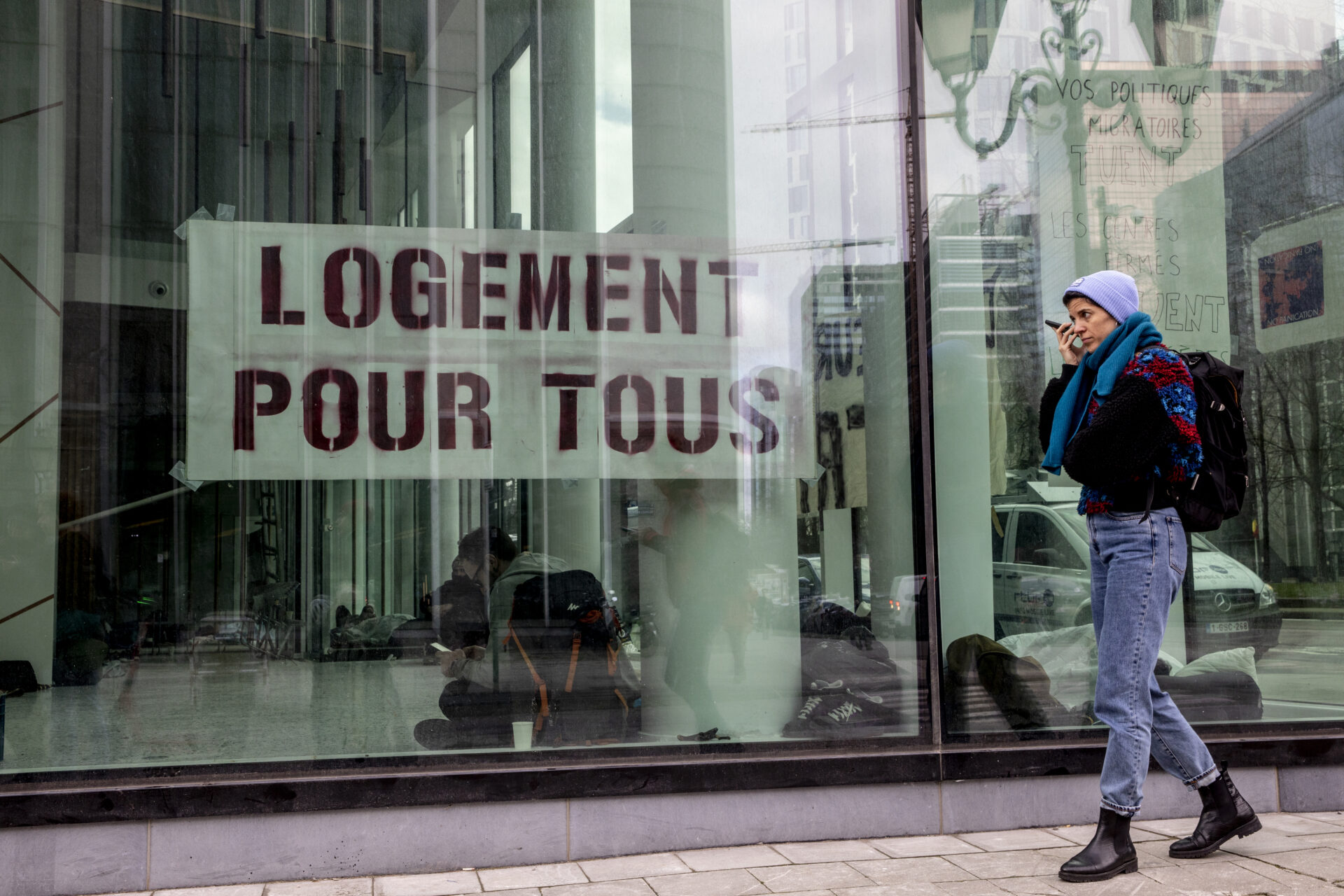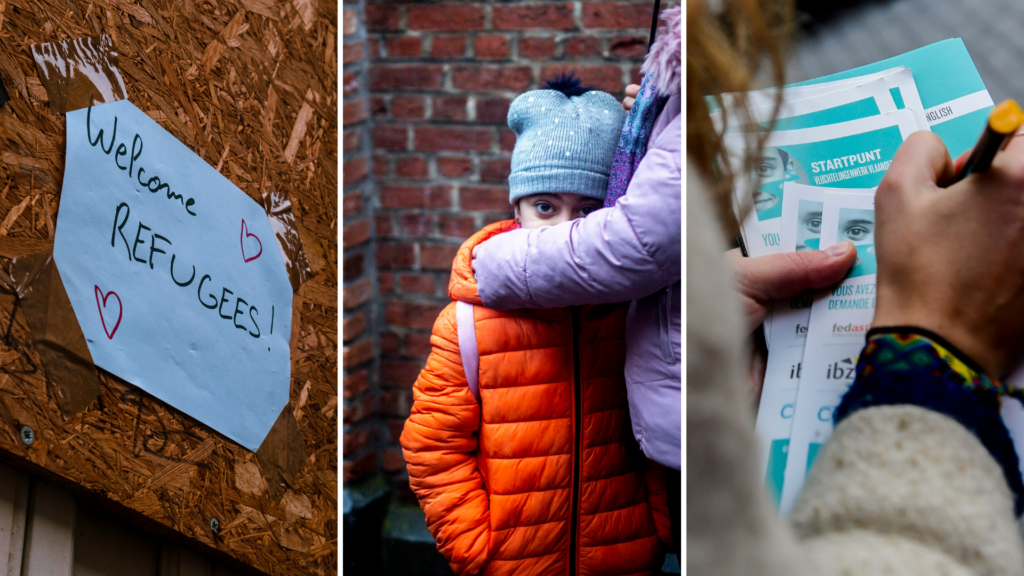This World Refugee Day (20 June), Belgium finds itself heading towards a markedly more right-wing political landscape, with even moderate parties hardening their stances on migration to seduce voters. What risks will the next mandate mean for refugees, and what is the societal cost of this anti-immigration narrative?
Belgium's lurch to the right, driven by voters' desire for change, will likely see its current 'progressive' government be replaced with parliaments that have a tougher approach when it comes to migration, security and socio-economic issues.
For the more vulnerable newcomers to Belgian society, including asylum seekers and migrant workers, the future looks bleaker than ever. These people were used as pawns in political games in the run-up to the elections, with parties scaring voters with deceiving figures about "unprecedented influxes". As a result, vulnerable people will now likely further see their human rights eroded.
Perpetuating the problem
Despite only accounting for 10-15% of total global migration, refugees have in recent years been singled out to become the embodiment of "unwanted migration" in the political sphere. "The stereotypes circulating about migration go far beyond refugees themselves," Migration and Asylum Researcher at Odisee University College, Pascal Debruyne, told The Brussels Times.
Exploiting refugees for political gain and using them as a scapegoat for other issues, such as rising insecurities or the lack of (social) housing, has become the norm. "This is pure demagoguing because the social housing policy has always fallen short in recent decades. We only have bad policy to blame for this, but now, refugees serve to evade political responsibility," Debruyne said.
These claims have made it easy for politicians to promise to take both legal and illegal steps to capitalise on this sentiment, such as restricting access to a living wage and social housing.
Ahead of the elections, Thomas Willekens of Refugee Work Flanders explained how politicians mislead voters with incorrect information about curbing migration. In the elections, this narrative, combined with "compassion fatigue" which has seen support for refugees fall, is believed to have won them numerous votes.
"Almost all Dutch-speaking parties are promising to introduce stricter policies under the guise of decreasing the number of people arriving in Belgium," Willekens told The Brussels Times after the elections. "This is not going to affect that influx, but it is going to make procedures more difficult and complex, and make the lives of people on the run worse."
Related News
- Eviction of 80 people in Ixelles cancelled due to demonstration
- 'Choose solidarity': Refugee NGO calls on people to consider human impact of vote
For refugees, there are dire consequences to this rhetoric. "Our understanding of people's rights is being turned upside down," said Debruyne. "Rights cemented in the welfare state such as social services used to be seen as leverages that help people build a life for themselves. Now, this access is no longer considered a right and lever, but a privilege that needs to be earned."
Leaving these vulnerable people in limbo has severe consequences: refugees spend more time in poverty and are more likely to be exploited, become victims of domestic abuse or survive through the informal economy.
Willekens added that this vicious cycle allows policymakers to maintain the "problem" around migration. "This again justifies the tougher policy but does not solve the root of the issue. The cost is far greater than daring to invest in a more positive asylum policy." Debruyne noted that Belgian taxpayers too pay for this outcome.
Endless reception crisis
This is particularly evident when looking at Belgium's asylum reception crisis. Since autumn 2021, thousands of people have been forced to sleep rough as Belgium failed to provide asylum seekers with the shelter to which they are legally entitled.
"The situation is hopeless, especially for single men," Willekens said. "This reception crisis is going to last for some time, and we should expect even fewer solutions from the government." State Secretary for Asylum and Migration Nicole de Moor warned earlier this week that families – long considered the priority group – may not receive shelter either, due to lack of places.

A public building squatted by asylum seekers in protest of the reception crisis in 2023. The sign reads 'Accommodation for all'. Credit: Belga / Hatim Kaghat
"The same methods that don't work are still being tried (voluntarily opening shelters where possible, reducing inflows and increasing outflows) rather than a decisive solution in the form of the distribution plan being implemented." The European Migration Pact is also being put forward by de Moor, even though it will likely not enter into force until June 2026.
"The argument that this will ensure Belgium can limit taking in just 11,000 asylum seekers per year is also a pure assumption. This is not included in the current pact. It is clear this will not immediately result in fewer asylum applications, making it a very lazy, dangerous solution to put forward."
Another aspect of the reception crisis that poses a problem is the neglect for the rule of law. Belgium has been convicted over 9,000 times for violating (international) law by failing to shelter international protection applicants, raking up millions in fines.
The State has done nothing to address these rulings, which Debruyne said creates a dangerous precedent, as parties put forward potentially illegal measures to keep out or deter refugees.
"Acting according to the principles and procedures of the rule of law can no longer be considered the standard," he warned. "This hasn't been about refugees alone for a long time. It's about daring to go so far for electoral gain and opportunistic power-building that you would even undermine the rule of law. Even worse, they are using refugees as the instrument to do so."
A necessary U-turn
Debruyne stressed that the justified concerns about the affordability of the welfare state under a greying society and preventing newcomers from contributing to society are vehemently opposed.
"We have this group of people who cannot invest in their future, social mobility, education and employment, and who are forced into survival mode because of these policies. The electoral gain is in stark contrast to all the costs that society will have to bear as a result," he said.
He noted that both voters and politicians should learn that migration is something which cannot be stopped, and instead should focus on viable, legal routes.
"We must ensure that the procedures involved are made feasible, so people who want a better future can make one here, which will benefit all of society. I don't understand how we can't put that forward as a positive story about migration. Not because it's ideological, but because it's the only right way."

